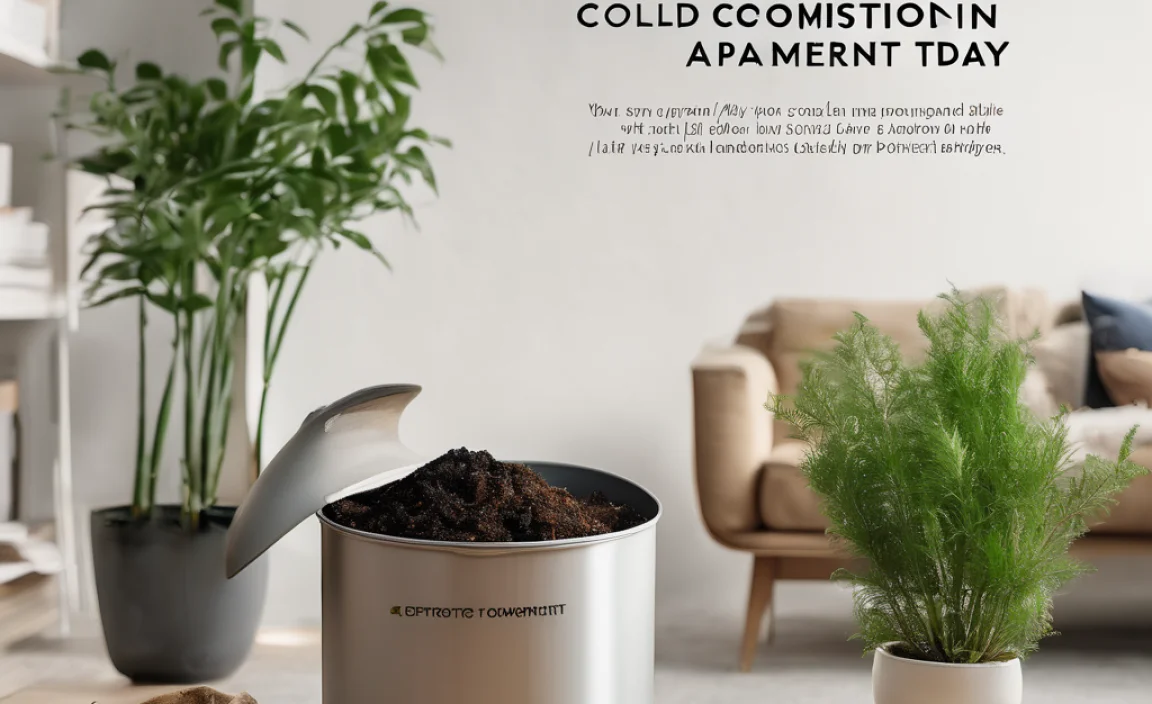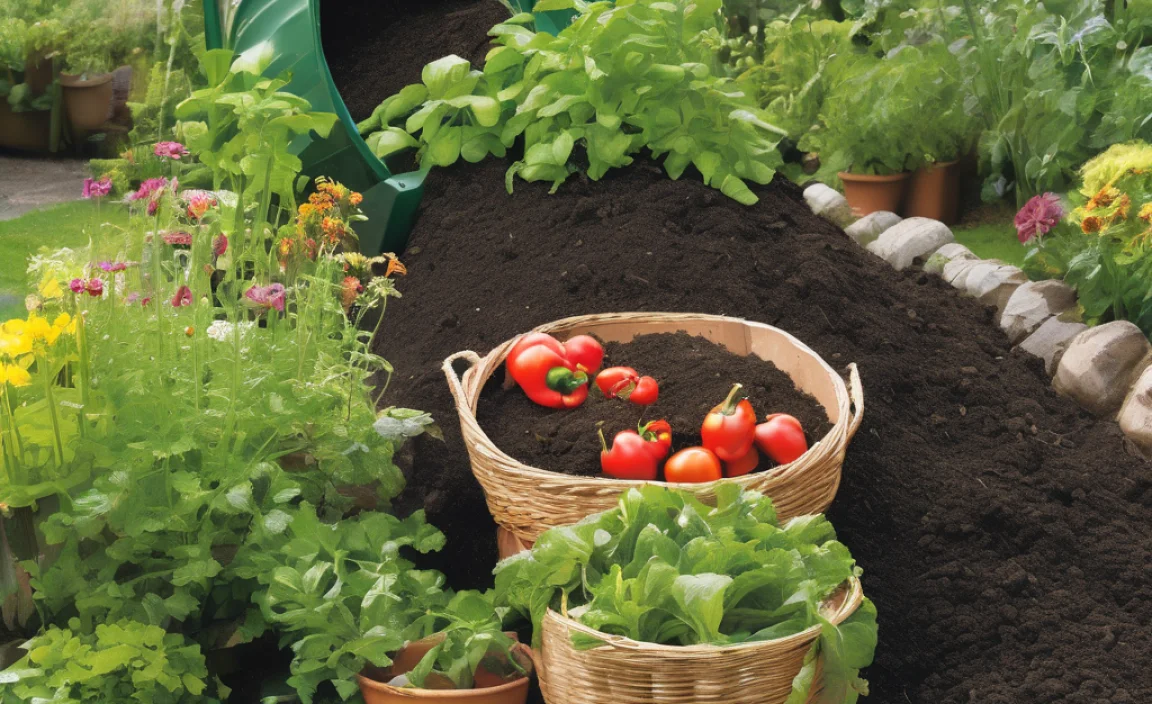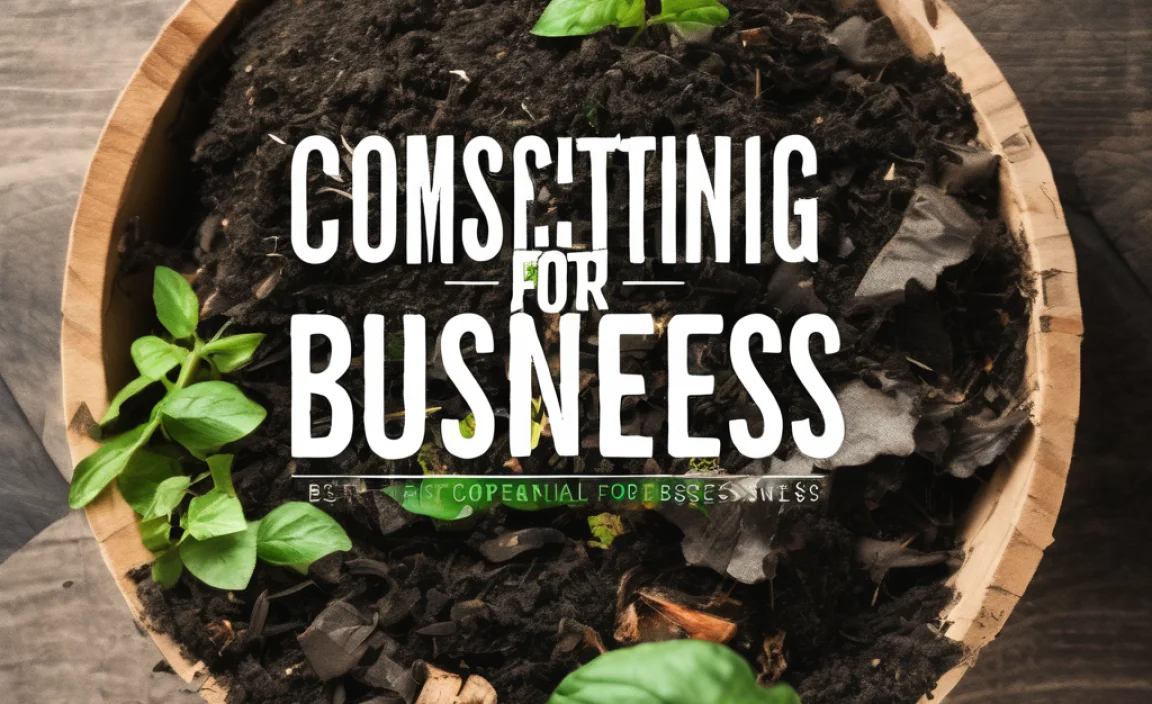Dealing with food scraps in a hotel can feel like a never-ending battle. You’ve got plates from breakfast, leftover buffet portions, kitchen trimmings, and more. If it’s not handled right, this waste can create some seriously unpleasant smells. It’s a common problem that can turn a fresh, clean hotel environment into something guests notice for all the wrong reasons. But don’t worry! There are smart, simple ways to manage food waste that stop odors in their tracks. We’ll walk you through how to make composting a win for your hotel. Let’s get started!
Composting for Hotels: Turning Odor Pests into Eco-Heroes
Hey there! Troy D Harn here from TopChooser. You know, I’ve seen my fair share of kitchens and gardens, and I’ve learned that a little bit of know-how can solve a whole lot of problems. Today, we’re diving into something that might sound a bit surprising for a hotel: composting. But stick with me, because when done right, composting isn’t just about being green; it’s a genius way to eliminate those pesky food waste odors that can make a hotel feel less than welcoming. It’s essential for a fresh, appealing atmosphere and it’s totally doable, even for beginners!
Think about it: a busy hotel kitchen generates a lot of organic waste. From uneaten meals to vegetable peels and coffee grounds, it all adds up. Instead of sending it to a landfill where it rots and smells, we can turn it into something valuable. This guide will break down exactly how implementing a composting system can be your secret weapon against hotel odors, making your establishment cleaner, greener, and more appealing to guests.
Why Composting is King for Hotel Odor Control
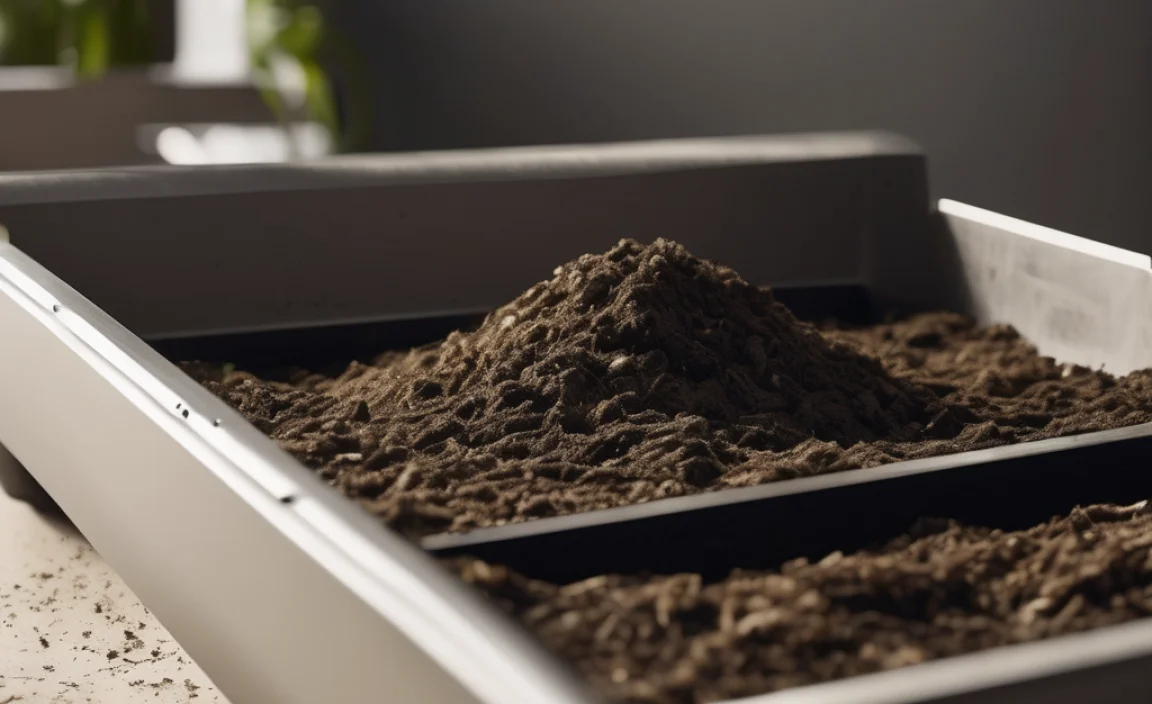
Let’s be honest, nobody wants to check into a hotel and be greeted by the faint (or not-so-faint) smell of decaying food. Odors can be a huge turn-off for guests and can even impact online reviews. Traditional waste disposal often means food scraps sitting in bins, sometimes for days, creating a breeding ground for bacteria and releasing those unpleasant gases. This is where composting steps in as a brilliant solution. By breaking down organic waste quickly and efficiently, composting diverts the material from landfills and significantly reduces the potential for foul odors in and around your hotel.
Composting essentially speeds up the natural process of decomposition. When organic materials decompose in an oxygen-rich environment (like a well-managed compost bin), they break down into nutrient-rich soil amendment, also known as compost. This process generates much less odor than anaerobic decomposition (rotting without oxygen), which is what typically happens in landfills and leaky trash bags.
The Science Behind the Smell and How Composting Fixes It
When food waste sits in a sealed trash bag or dumpster without enough air, it goes through a process called anaerobic decomposition. Microbes that don’t need oxygen take over. These little guys produce gases like hydrogen sulfide (which smells like rotten eggs) and methane. Not exactly the scent you want wafting through your hotel!
Composting, on the other hand, is an aerobic process. This means it relies on oxygen-loving microbes. As these microbes munch away on the food scraps, they produce mostly carbon dioxide and water, with minimal odor. A properly managed compost pile or bin has the right balance of “greens” (nitrogen-rich materials like food scraps) and “browns” (carbon-rich materials like dried leaves or cardboard), which keeps the decomposition process efficient and odor-free. It’s all about creating the right environment for those beneficial microbes to do their work!
Benefits Beyond Odor Control
While tackling odors is a massive win, composting for hotels offers a bounty of other advantages:
- Reduced Waste Disposal Costs: Less trash means potentially lower hauling fees.
- Environmental Stewardship: Diverting waste shows a commitment to sustainability, which many travelers value.
- Resource Creation: Compost can be used in hotel landscaping, reducing the need to buy fertilizers.
- Positive Brand Image: Being an eco-friendly hotel can be a significant marketing advantage.
- Employee Engagement: Implementing new, positive initiatives can boost staff morale.
Getting Started: Your Hotel Composting Plan
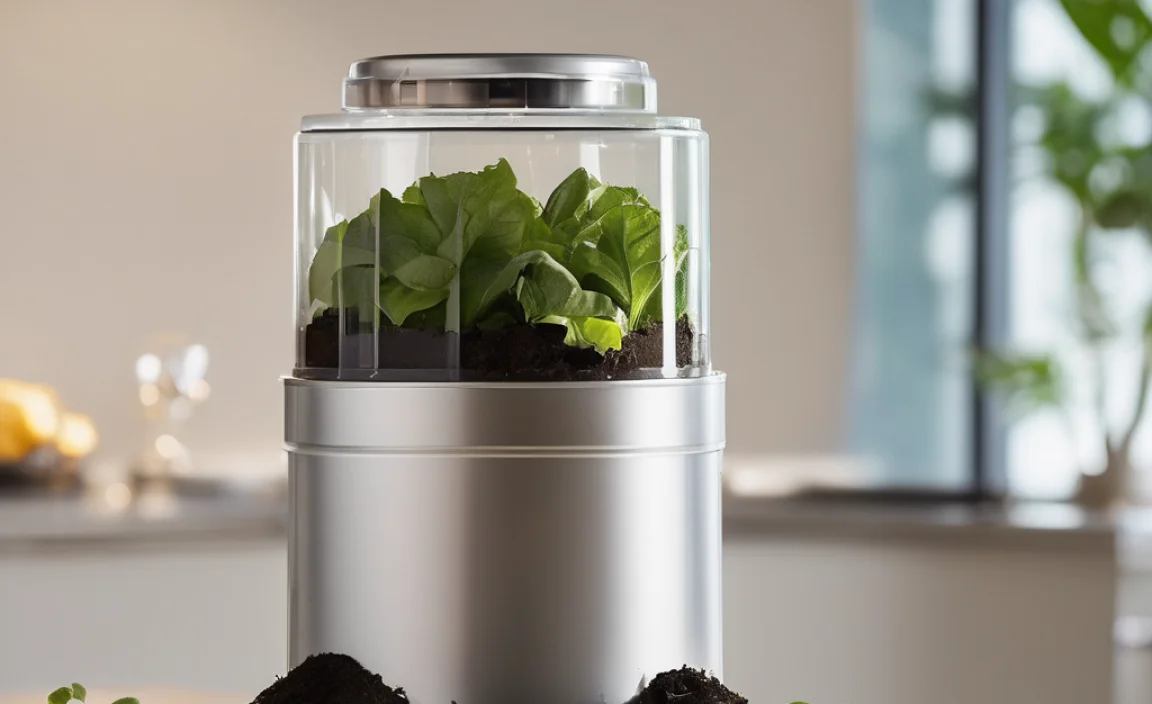
Alright, let’s get practical. Implementing a composting system in a hotel might seem daunting, but it can be broken down into manageable steps. The key is to start simple and scale up.
Step 1: Assess Your Waste Stream
Before you buy a single bin, take a close look at what kind of food waste your hotel generates. Where does it come from? The kitchen prep areas? Dining rooms? Bars? Understanding the volume and types of waste is crucial for choosing the right composting method and collection system.
- Kitchen Prep Waste: Vegetable peels, fruit scraps, coffee grounds, tea bags, eggshells.
- Plate Scraps: Leftovers from guest meals (be mindful of what can and can’t be composted – things like bones and dairy can sometimes cause issues if not managed carefully).
- Spoiled Food: Any food items that are past their prime.
Step 2: Choose Your Composting Method
There are several ways to compost, and the best choice for your hotel will depend on your space, volume of waste, budget, and local regulations. Here are some popular options:
Option A: On-Site Tumbler or Bin Composting
If you have some outdoor space, like a garden area or behind the hotel, a compost tumbler or a sturdy bin can work. Tumblers are great because they make turning the compost easy and contain odors well. Static bins are more traditional and can handle larger volumes.
- Pros: Direct control over the process, compost produced on-site can be used for landscaping, visually demonstrates commitment to sustainability.
- Contros: Requires outdoor space, needs regular management (turning, moisture control), potential for attracting pests if not managed correctly, may have limited capacity for large hotels.
Option B: In-Vessel Composting Systems
These are more advanced, enclosed systems that can be suitable for urban environments or larger operations. They often mimic the composting process but are contained within a sealed unit, minimizing odor and pest issues. Some advanced systems can even process waste relatively quickly.
- Pros: Excellent odor and pest control, can be more compact, suitable for areas with limited space or strict pest regulations.
- Contros: Higher initial cost, may require a power source, might need specific operating procedures.
Option C: Partnering with a Commercial Composting Service
This is often the easiest and most efficient solution for hotels, especially those with high volumes of food waste or limited space. You collect your food scraps, and a third-party service picks them up regularly and takes them to a commercial composting facility.
- Pros: Minimal effort required from hotel staff, no need for space or management of compost piles, professional handling of waste, can handle large volumes, significantly reduces odor in hotel bins from waste sit-time.
- Contros: Ongoing service fees, less direct control over the composting process, compost isn’t produced on-site.
Writer Tip: For most hotels looking to tackle odors and start simply, partnering with a commercial composting service is the most practical first step. If you’re in a location that doesn’t have commercial services readily available or you’re aiming for a more hands-on approach, on-site methods can be very rewarding.
Step 3: Setting Up Your Collection System
Where and how food waste is collected within the hotel is critical to odor control. You need a system that makes it easy for staff and minimizes smells between pickups or when emptied into the main compost receptacle.
Kitchen and Service Areas
- Dedicated Bins: Use clearly labeled, odorless bins with tight-fitting lids for food scraps in all prep areas and dishwashing stations. Aim for bins that are easy to clean. Consider foot-pedal operated bins to help reduce contact and potential odor release.
- Regular Emptying: Train staff to empty these smaller bins into a larger, designated collection point frequently throughout the day, especially during peak times.
- Bin Liners: Use compostable bin liners (certified BPI certified or equivalent) for smaller bins. These can help contain moisture and odors.
Dining Areas
For plate scrapings:
- Designated Stations: Set up discreet collection stations in dining areas or near the exit for guests to scrape their plates. This is less about composting and more about collecting waste efficiently before it lingers at tables.
- Smaller Bins: Use smaller, lidded bins at these stations that are emptied regularly by staff into the main collection point.
Main Collection Point
This is where all the collected food waste is temporarily stored before it’s picked up by a commercial service or added to your on-site system.
- Location: Choose a cool, shaded, and well-ventilated area. Outdoor collection points should be away from guest areas and main entrances.
- Large, Lidded Receptacle: Invest in a large, durable, sealed bin. Ensure the lid fits tightly to prevent pests and odor escape.
- Regular Pickups: Schedule frequent pickups with your commercial composting service (daily or every other day, depending on volume and weather).
- Hygiene: Establish a strict cleaning schedule for all collection bins to prevent residual odors and bacteria buildup.
Step 4: Training Your Staff: The Secret Weapon
No system will work without your team’s buy-in and understanding. Proper training is absolutely essential for successful composting and odor management.
- Education is Key: Explain why composting is being implemented – it’s about reducing odors, being eco-friendly, and improving the hotel environment.
- What Goes In & What Stays Out: Provide clear guidelines on what is compostable and what is not. Common compostables include fruits, vegetables, coffee grounds, tea bags, eggshells, and certain paper products (like unlined napkins, if your service accepts them). Items to avoid often include meat, dairy, bones, oily foods, and non-compostable packaging. This is crucial for preventing contamination and odors.
- How to Collect: Demonstrate the correct way to use the bins, tie liners, and empty waste into the main collection point.
- Hygiene Practices: Emphasize the importance of washing hands and cleaning bins regularly.
- Feedback Loop: Encourage staff to ask questions and provide feedback. They are on the front lines and their input is invaluable.
Step 5: Managing On-Site Composting (If You Choose That Route)
If you opt for on-site composting, this step becomes key. Managing your compost effectively is how you keep odors at bay and ensure the process works.
The Recipe for Good Composting: Greens, Browns, Air, and Water
Think of it like baking a cake – you need the right ingredients and conditions.
- Greens (Nitrogen-Rich): This is your food waste – fruit and veggie scraps, coffee grounds, grass clippings.
- Browns (Carbon-Rich): This is material like dried leaves, shredded cardboard, newspaper, wood chips. You’ll need to source these, perhaps from landscaping or by collecting clean cardboard.
- The Ideal Mix: A good ratio is generally about 2 to 3 parts browns to 1 part greens. Too many greens can make the pile wet and smelly. Too many browns can slow down decomposition.
- Air (Aeration): Compost needs oxygen. If using a bin, turn it regularly (e.g., once a week) with a compost aerator tool or a pitchfork. Tumblers make this easy. Making sure air can get into the pile is vital for aerobic decomposition.
- Water (Moisture): A compost pile should be as damp as a wrung-out sponge. Too dry and it slows down; too wet and it can get stinky and anaerobic. Add water if dry, or add more browns if too wet.
Troubleshooting Odors in On-Site Composting:
If your on-site compost starts to smell:
- Smells like Ammonia: Too much green material (nitrogen). Add more brown material like shredded cardboard or dry leaves.
- Smells like Rotten Eggs (Sulfur): The pile is too wet and lacks oxygen (anaerobic). Turn it thoroughly to introduce air, and add more brown material to absorb excess moisture.
- Smells Musty/Rotten: Usually means it’s too wet and compacted. Turn it to aerate and add browns.
Odor Control Best Practices for Hotels
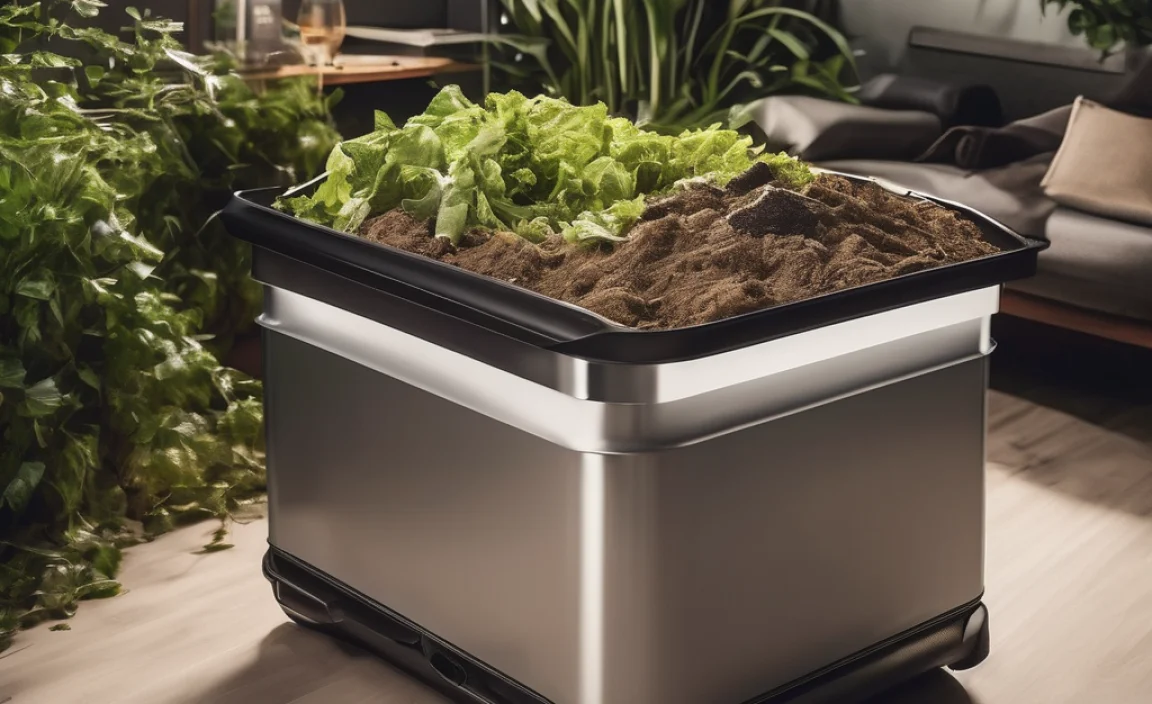
Beyond the composting method itself, certain practices are crucial for maintaining a fresh-smelling hotel environment.
Regular Cleaning and Maintenance
This cannot be stressed enough. All bins, collection containers, and composting areas (if applicable) must be cleaned and sanitized regularly. Use an eco-friendly cleaner. A clean environment drastically reduces the chance of odors developing.
Temperature Control
Heat can accelerate decomposition and VOC (volatile organic compound) release, intensifying smells. If using an outdoor collection point or on-site system, ensure it’s in a shaded area. For indoor bins, consider smaller bins that are emptied more frequently.
Pest Management
A well-sealed composting system, tight-fitting lids on all bins, and frequent emptying are the first lines of defense against pests. If using on-site composting, ensuring the compost is well-managed (proper green-to-brown ratio, adequate aeration) also discourages pests.
Communication and Signage
Clear, polite signage can educate guests and staff. For example, if you have composting bins in guest-facing areas (like a cafe), provide simple instructions. Internally, ensure all staff know the procedures and understand the ‘why’.
Choosing the Right Tools for the Job
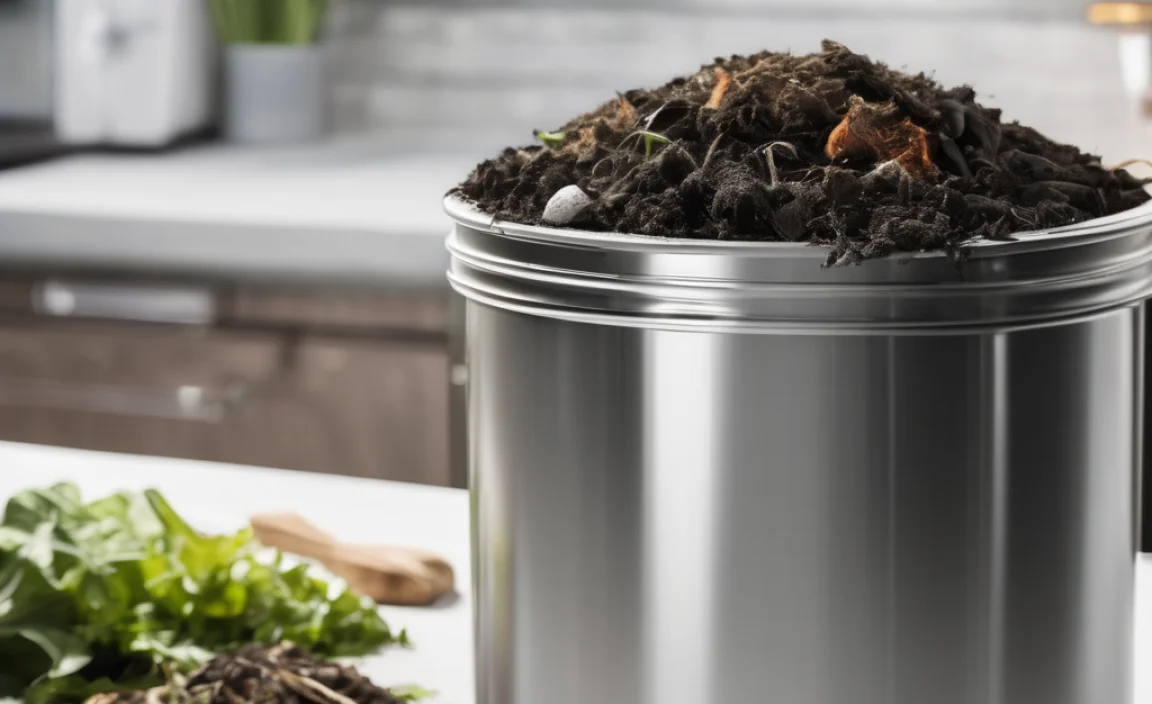
Whether you go for on-site or off-site composting, having the right tools makes the job easier and more effective.
<td style=”border: 1px solid #ddd; padding: 8px
Related Posts
| Tool/Item | Description | Why It’s Essential for Odor Control |
|---|---|---|
| Tight-Lidded Bins | Various sizes for kitchens, service areas, and main collection points. | Contain odors and prevent leaks, crucial for preventing smells from escaping collection points. |
| Compostable Bin Liners | Certified compostable bags. |

I am passionate about home engineering. I specialize in designing, installing, and maintaining heating, ventilation, and air conditioning systems. My goal is to help people stay comfortable in their homes all year long.

